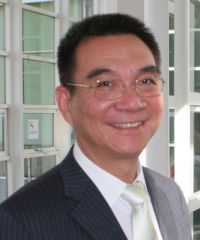Justin Lin Yifu
Justin Lin Yifu (Chinese:林毅夫) is a renowned Chinese economist and currently serving as the chief economist and senior vice president of the World Bank.
A founder of China Center for Economic Research in Peking University, one of the country’s economic think-tanks, he opposed a hastened appreciation of the yuan.
Born Lin Zhengyi (Chinese: 林正义) on Oct. 15, 1952, in Yilan, Taiwan, Lin entered National Taiwan University in 1971. Yet differently from most of his peers who might have chosen academic booths in the United States, he joined the local army, where he was awarded as a model soldier and highly appreciated by the then Taiwan leader Chiang Ching-kuo.
That, however, did not satisfy his ambitions. In 1978, he made a bold move to swim from his foothold Kinmen Island controlled by the Taiwan authority to the neighboring island of Xiamen of the Chinese mainland. He later explained the audacious action was taken for a hope to be a citizen not only in Taiwan but the rest parts of China. “Taiwan people should have a strong will to participate in the political affairs not only of Taiwan but also of China as a whole,” he wrote in one of his letters to his cousin in Tokyo, a year after his mainland conversion.
He arrived on the Chinese mainland at the time when it was putting an end to the disastrous Cultural Revolution (1966-1976) and resolved to embark on the path of reform and opening-up. Lin was enrolled by Peking University in 1982 in a master’s program in economy. In 1986, he became one of the first citizens from the Chinese mainland to receive a doctorate from the University of Chicago where he had studied agricultural economics under the guidance of late Nobel laureate Theodore Schultz. It was also in the United States where he reunited with his wife Chen Yunying as well as his 6-year-old son and 4-year-old daughter.
The couple went back to the Chinese mainland in 1987, and Lin thus became the first Chinese citizen receiving a Ph.D. in economics overseas who eventually chose to return. He soon became a leading economist in China, joining the think-tank for the State Council and drafting the country’s 10th Five Year Plan. In 1994, he collaborated with several overseas returnees to establish the China Center for Economic Research. He is also a senior member of Chinese People’s Political Consultative Conference (CPPCC) and an important economic advisor for former Premier Zhu Rongji and incumbent premier Wen Jiabao.
In 2009, Lin received an honorary doctorate from Fordham University, a private, non-profit, co-educational research university in the U.S. A year later, he was elected a Corresponding Fellow of the British Academy, a United Kingdom’s national body for humanities and the social sciences. The influences of his in-depth research and extraordinary analysis of China’s economic situations continue to expand globally.
However, his professional success is paired with personal struggles. He had been denied twice to return to Taiwan for a final visit with his now-deceased parents, a Chinese tradition of filial piety. He grieved deeply for being unwelcomed in Taiwan, a place he said has constantly haunted his dreams.
